Letter from Porthmadog
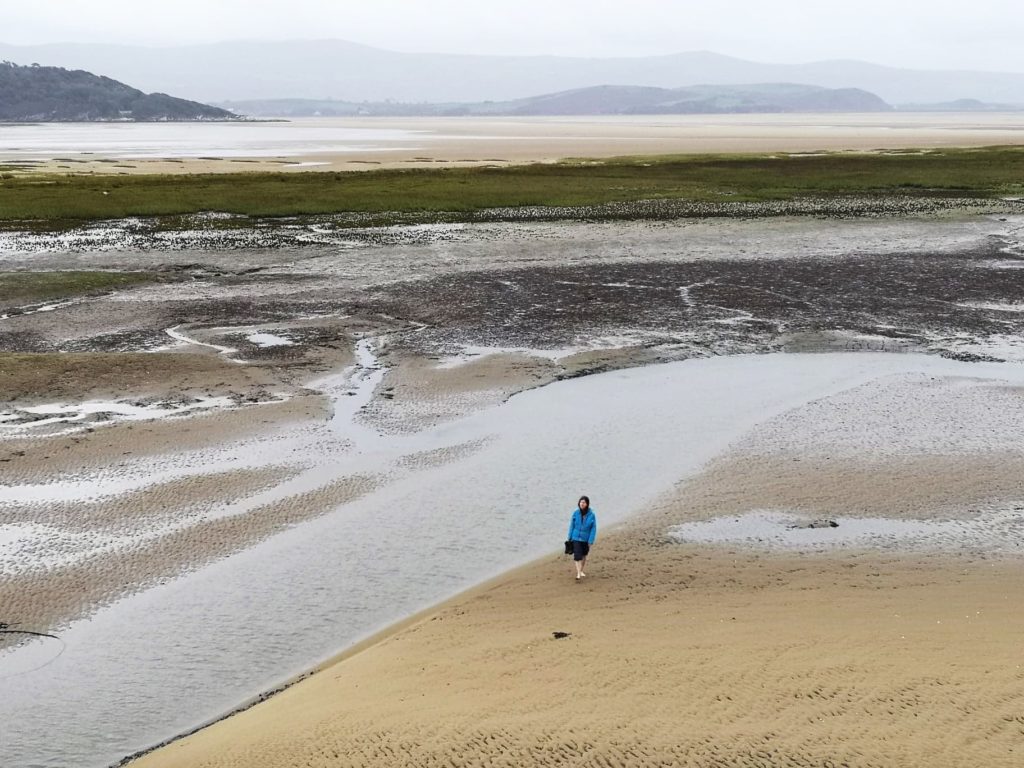
Julie Brominicks
The train writes a cursive sentence in steam which the wind tosses over The Cob. The wind makes off too, with the engine’s breathy toot.
Curlew flutes, oystercatcher whistles, redshank pipes and the occasional thoo-thoo of a greenshank ring out at intervals, around the estuary. High tide flops against the wharf wall like towels in a tumble-dryer.
On the first night, I am woken twice by the quick-kerricking of dozens of birds on a fly-by. Rob’s phone-app thinks they are sandwich terns. We don’t hear them again.
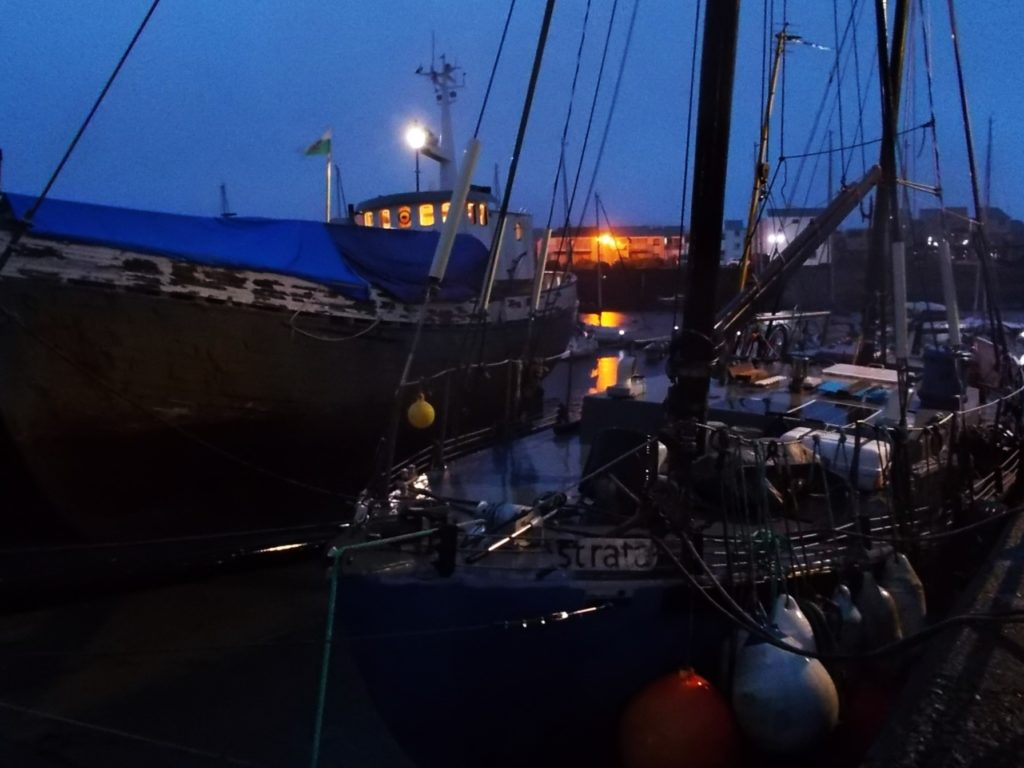
Porthmadog
In the race to secure a post road to Dublin, in 1811, Madocks (with a Porth Dinllaen sea-crossing in mind) built The Cob embankment across Afon Glaslyn – but lost the race to Telford and his Caergybi route.
The diverted Glaslyn scoured a channel deep enough for ships, so Madocks built a harbour instead – to export Blaenau Ffestiniog slate.
Soon a railway crossed The Cob and schooners were built, requiring foundries, ropemakers, sailmakers. Slate sheds and wharfs. Porthmadog evolved.
Often the slate ships came back empty, made stable with rocks for ballast.
Rotten Tare
The ballast was dumped onto a sand spit known as Rotten Tare, which was levelled into a wharf. The apartment we are renting is one of several built on it in the sixties.
“They were sold as ‘sailors’ lodges’- posh holiday homes” Allan from Cumbria tells me. He says only twelve or so people live here all year round.
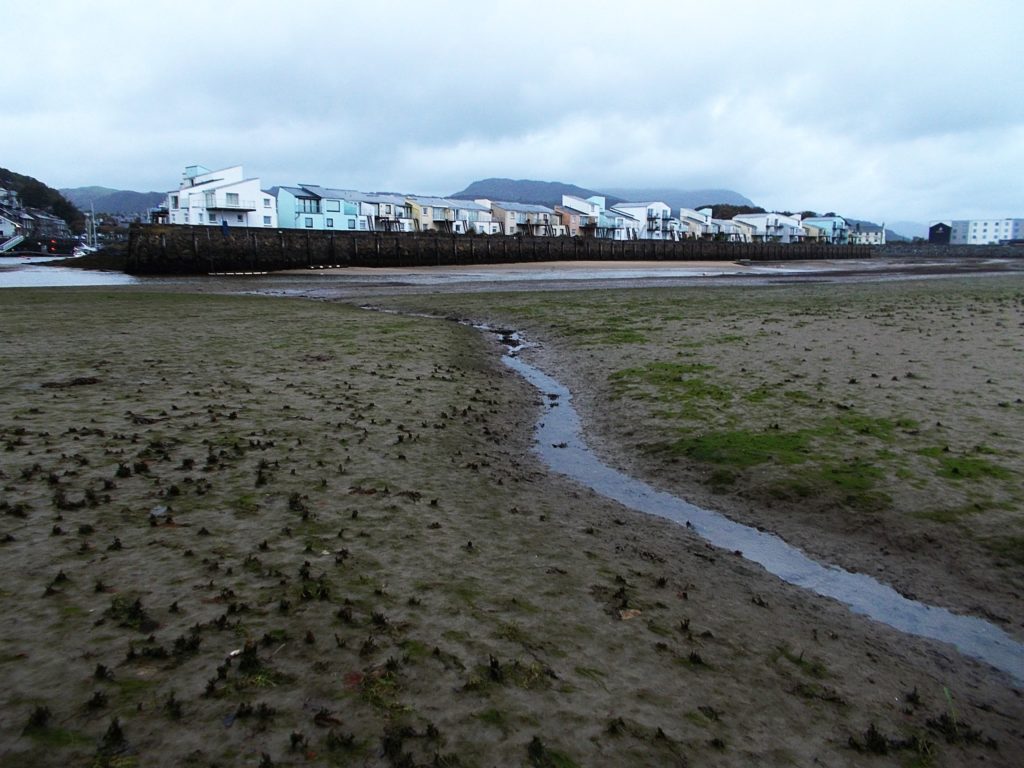
Rotten Tare folk – a man who digs for his lost chain at low tide, another who claps pigeons off his balcony, a woman looking worried with a bucket – keep an eye on Afon Glaslyn’s dangerous beauty with a restless calm demeanour. I fit right in.
The trains steam back and forth. A cormorant looks this way and that. Up and down the rusting rungs I go.
A man on the wharf above, having spotted something down on the sand (me) tilts forward like an egret in the tide race.
A herring gull tosses a crab onto its back, tears off and gulps down a leg. The crab’s pincers are still grabbing at the air as the gull stabs its soft underbelly.
Cob dwellers mix restless poise with discipline and purpose.
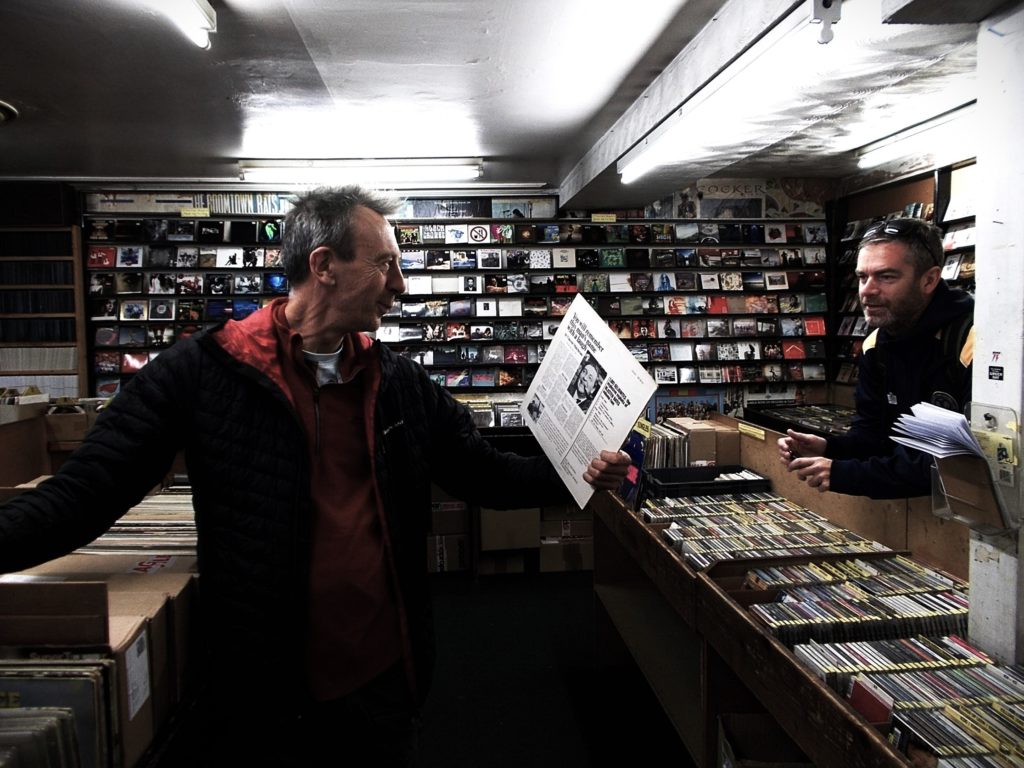
Cob Records
Hushed reverence as customers click through CDs. Click, click, click. That sound. A waft of cardboard and vinyl as albums are flipped. Flip flip flip. That smell. Records have been sold here since 1967.
“Remember this?” “Status Quo!”
Memories penetrate the shells of years. Tony the owner speaks softly and seldom, smiles, does not disturb them.
“Dan ni’n prysur pob dydd.”
I dance just a little on the worn carpet tiles, underneath the Artex ceiling, in this hallowed chapel at one end of The Cob.
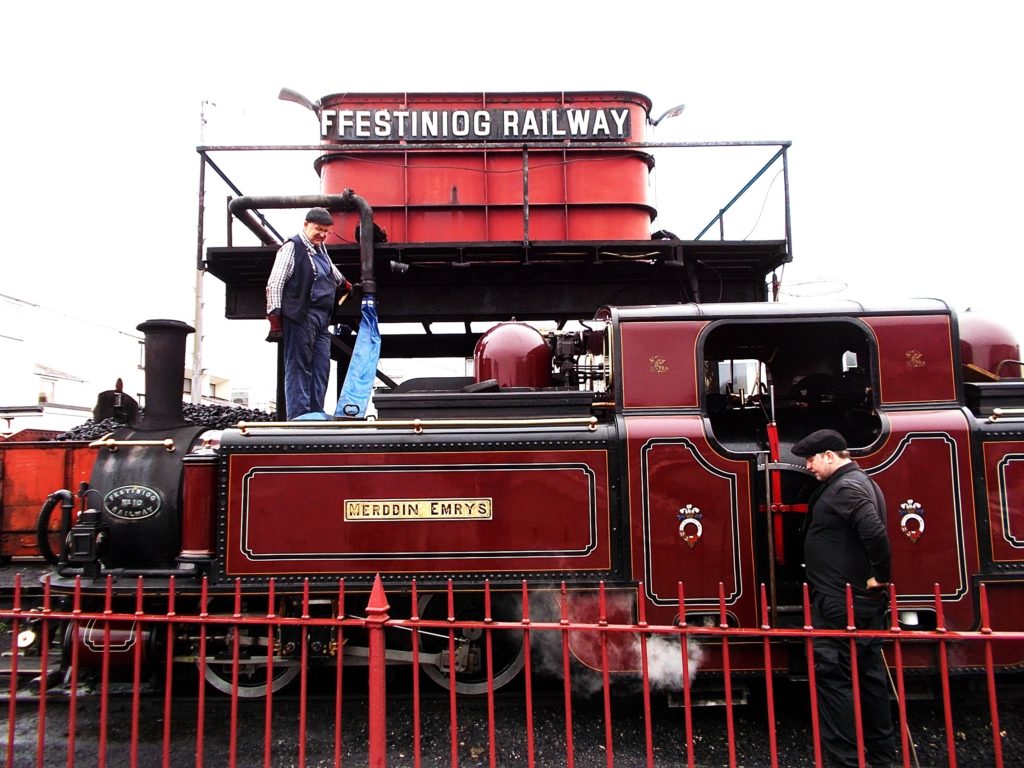
Railway
At the other end, Boston Lodge.
Before dawn when the goldcrests and robins sither-chip in the buddleia scrub but the wigeons on the river have yet to start calling, there is already activity at the oldest engineering railworks in the world to still restore, build and maintain steam engines.
A person (silhouetted) is polishing the windows of a Pullman Coach.
Harbour
In the harbourmaster’s office, Dafydd is stocking the paper-towel dispenser while Richard studies the computer.
“Dan ni’n gwneud yn siwr mae pobl yn gallu fod yn ddiogel yn yr harbwr” he explains. “It’s not an exact science. The harbour here is very dynamic. The sandbars and currents are constantly changing. We wear epaulettes in the summer, when it’s busier.”
A bunch of keys with cork floats weighs down papers in the in-tray.
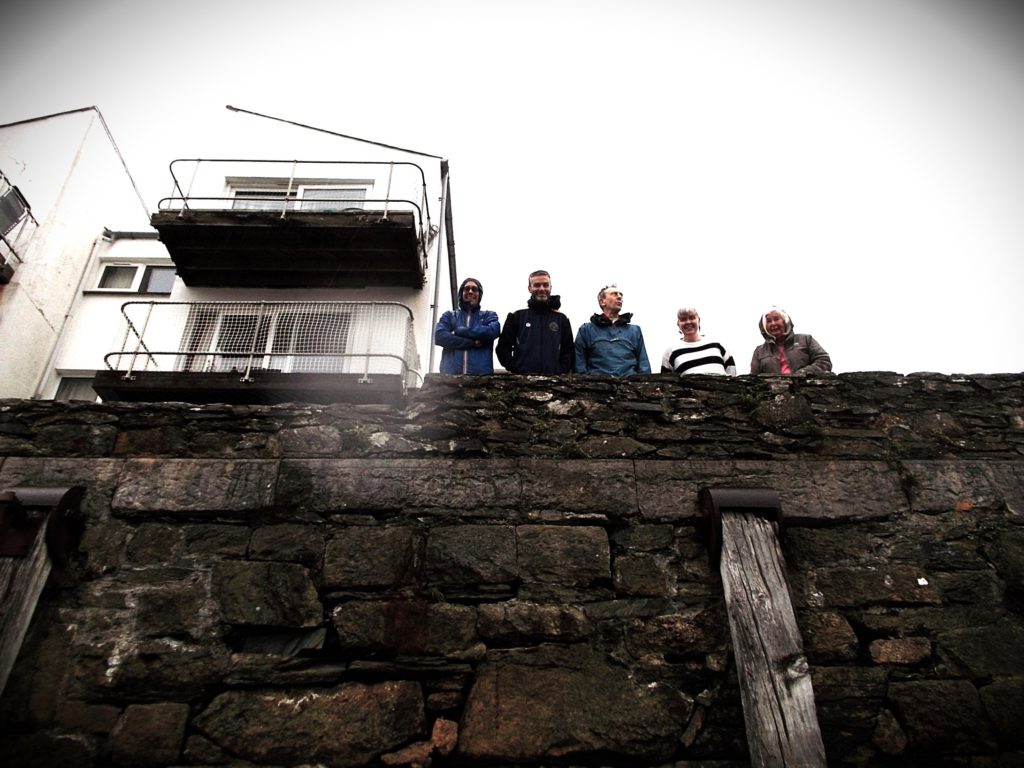
Holiday
A second spit, Cei Ballast, became the new rock dump. It is thick now with scrub.
One low tide I cross the channel to it. My feet meet bi-valves in the mud. I snap off and taste a sprig of marsh samphire. The grasses are abrasive. The egrets are roosting on the seaward side of the island. They sail into the sky like paper boats.
Returning, I notice a man on a balcony, watching. Ah yes – it is my brother.
My husband, Mum, sister, brother, his partner and I, are on holiday here because Porthmadog is not far by bus, from Yr Wyddfa, which Mum wants to go up by train.
We do that. We ride the Ffestiniog Railway. We swim at Borth-y-Gest, catch crabs in the dark, poke about the Maritime Museum.
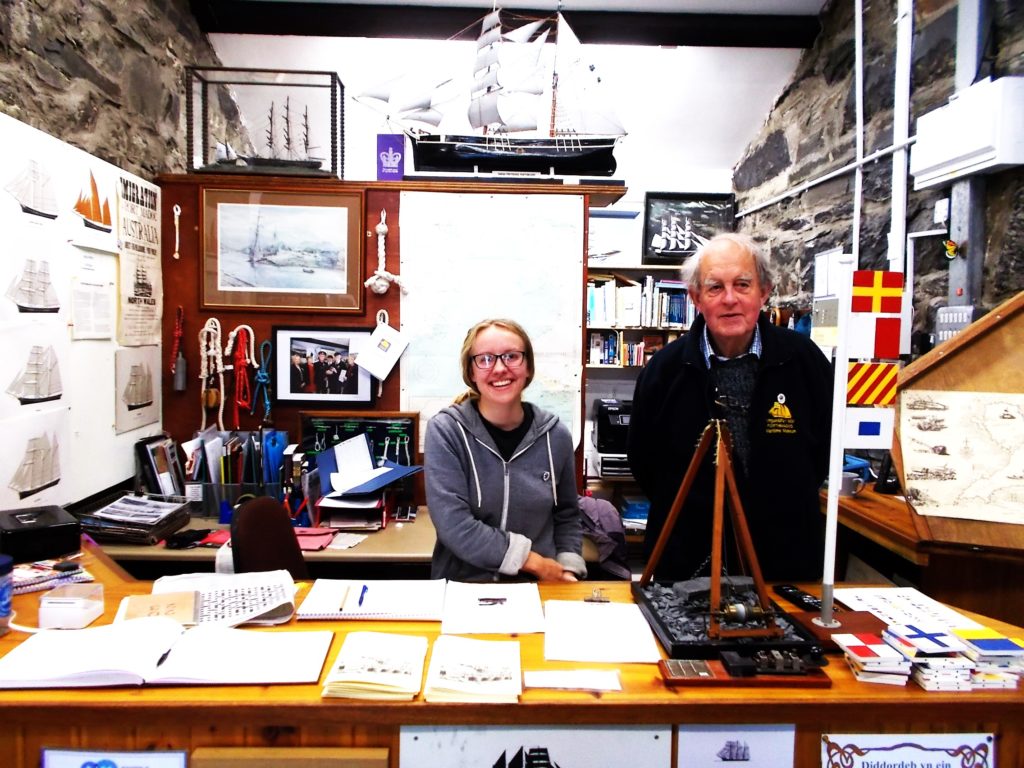
The apartment overlooks the estuary. Loud and rhythmic, a flying swan beats its wings like an engine shunting.
When the tide ebbs it’s a prairie out there. But at high tide, when egrets retreat to the Cei Ballast trees like queer baubles, it’s as if the apartment itself fills with water and light.
The wiped table shimmers.
One afternoon when I am on the balcony a red-throated diver glides by! Its body is all silver dapples, its eyes black beads, its neck and bill slender. It slides below the surface like oil.
Chatter and laughter bubbles from the kitchen behind me – Mum has lost the sugar.
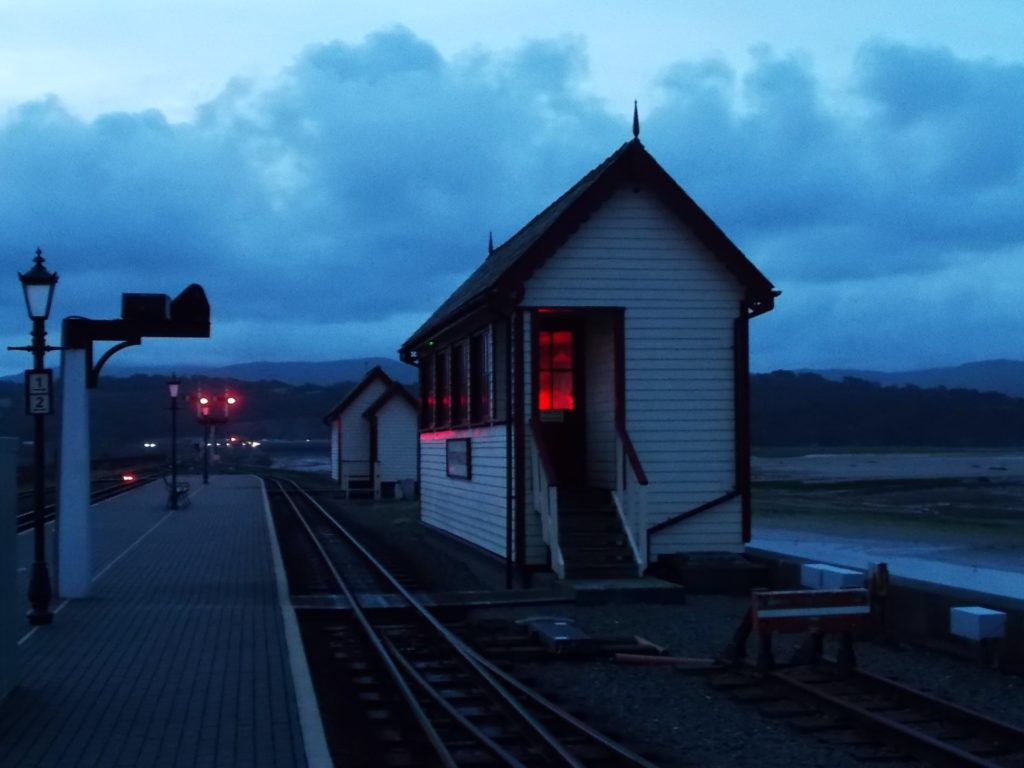
Rarely gregarious
The railwaymen, wearing flat caps and waistcoats attend to an engine. One shines a torchlight, while the other two shovel coal.
Dafydd is concentrating on a small boat nosing into the harbour. I squint at the boat, see the oarsmen. He lowers his binoculars, squints at me in a similar way.
Tony stands adrift in the middle of the shop before darting to a box. At 5pm exactly, the music stops.
Down the rusted rungs I go, onto dimpled sand. A train is in, I see right through its windows from here. Hear halyards clank. Smell the onion soup Rob is making.
A pair of mergansers preen off the spit. An egret picks up its long yellow-toed feet as if disgusted by the mud, like someone in Marigolds washing up greasy pots. Out near the boats, a hunched heron. On the marsh a curlew, its mosaic plumage – too lovely. A greenshank slips between grasses.
I read up on greenshanks in the bird book. It says they are rarely gregarious.
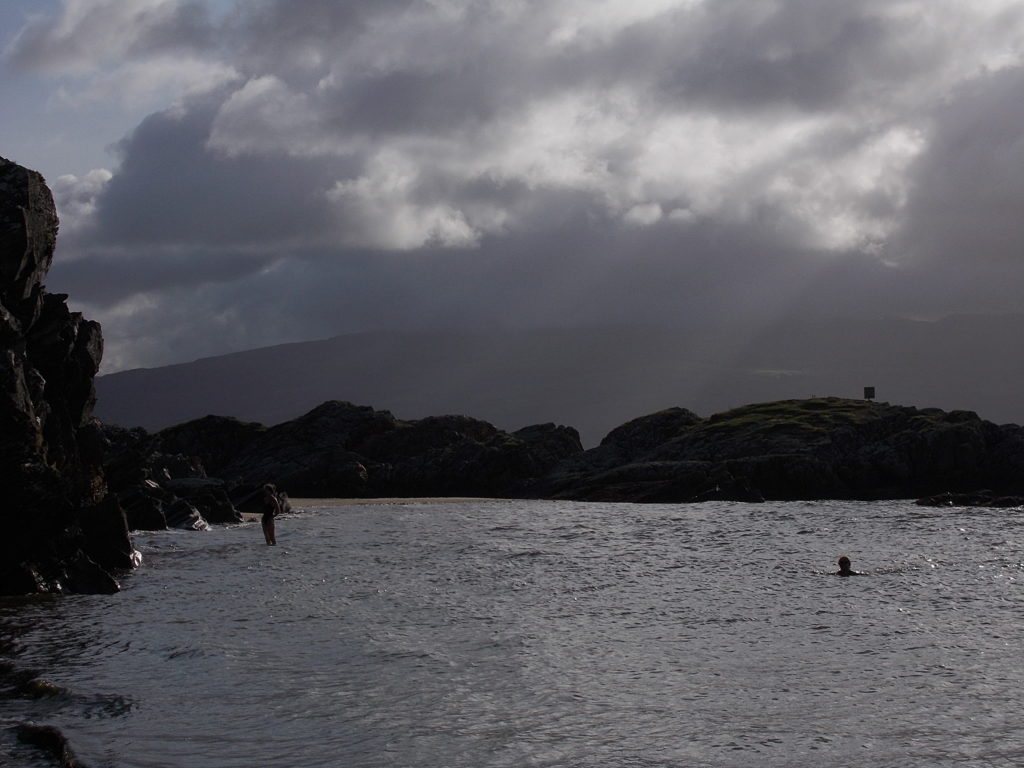
Julie Brominicks’ latest book is The Edge of Cymru: A Journey which is published by Seren.
Support our Nation today
For the price of a cup of coffee a month you can help us create an independent, not-for-profit, national news service for the people of Wales, by the people of Wales.







Just caught the end of the Victorian steam weekend, on that platform it was a job to know which century it was…
A Mention in Despatches for the 90 yr old chap on the s/h bookstall, keen to break records…